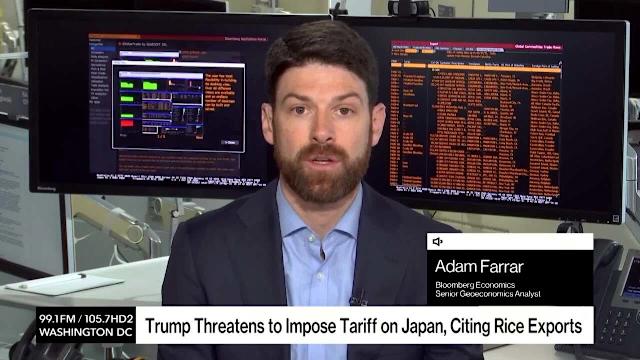
The European Union is willing to accept a trade arrangement with the US that includes a 10% universal tariff on many of its exports, but wants the US to commit to lower rates on key sectors. This is all according to people familiar with the matter. Europe wants lower levies on automobiles, car parts, steel and aluminum. The EU has until July 9 to secure a deal with President Donald Trump. Adam Farrar of Bloomberg Economics speaks on "Bloomberg Businessweek."
This article commenting on the EU's willingness to accept a US trade deal with key exemptions hints at an acknowledgment of different priorities, showcasing flexibility amid tough negotiations – signaling progress towards global economic cooperation despite initial reservations.
The willingness of the EU to accept a US trade deal with key exemptions suggests an insightful accommodation towards mutually beneficial arrangements, illustrating how partnerships can prioritize individual objectives while fostering global economic growth.
The reported willingness of the EU to accommodate certain key exemptions in a US trade deal shows pragmatic flexibility and an aspiration for balanced negotiations, albeit under strict conditions that could impact long-term partnership interests.
The EU's expressed willingness to accommodate the US trade deal while granting key exemptions suggests a pragmatic approach aimed at preserving core interests, yet raises questions about long-term reciprocity and balance in negotiations.
This proposed extension by the EU to accept U.S trade deal with key exemptions evidences a pragmatic willingness for both sides, aiming at resolving long-standing issues while preserving their respective national interests.
The reported willingness of the EU to accommodate US trade terms with key exemptions suggests a nuanced approach towards bilateral cooperation, emphasizing de-escalation over absolute concessions.














